Search titles
Displaying results 201 to 210 of 249.
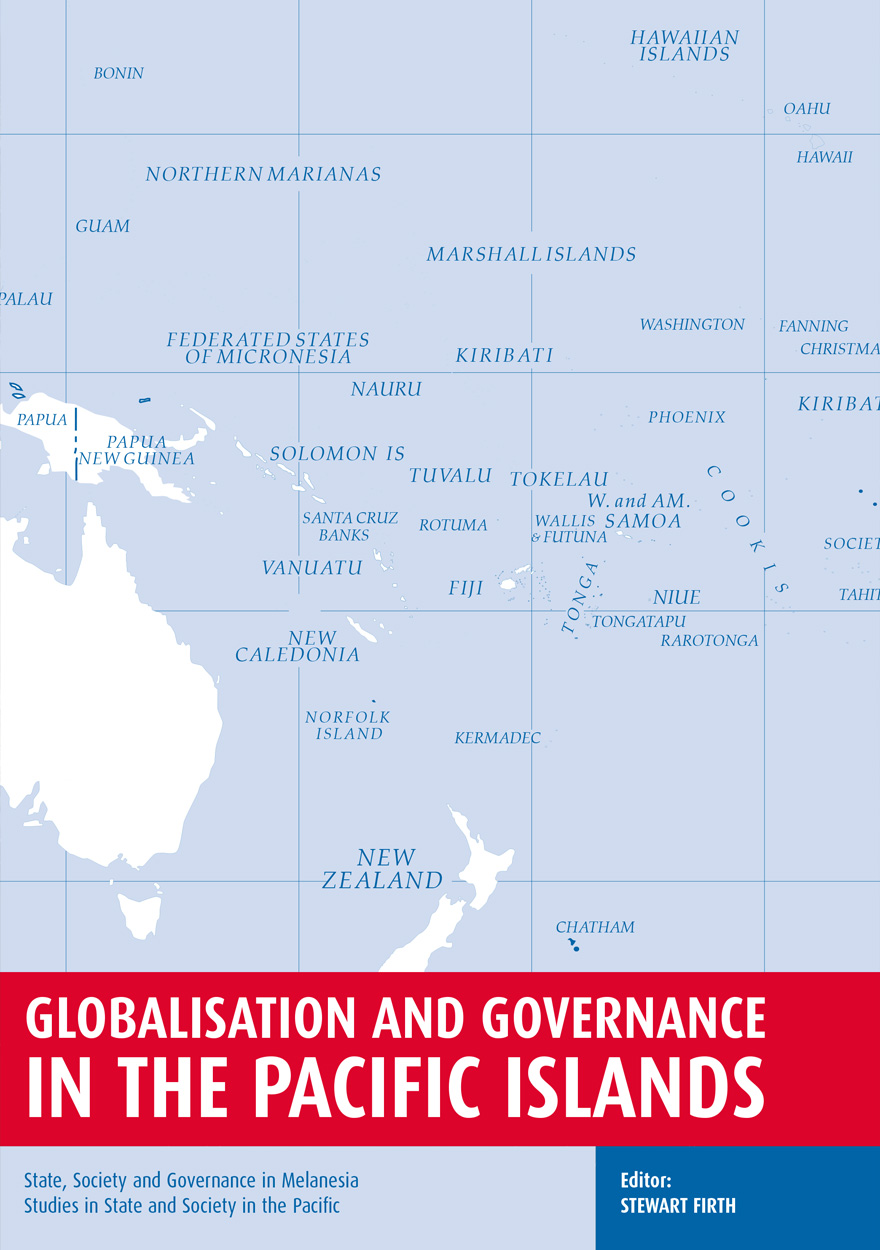
Globalisation and Governance in the Pacific Islands »
State, Society and Governance in Melanesia
Edited by: Stewart Firth
Publication date: December 2006
The Pacific Islands are feeling the effects of globalisation. Free trade in sugar and garments is threatening two of Fiji’s key industries. At the same time other opportunities are emerging. Labour migration is growing in importance, and Pacific governments are calling for more access to Australia’s labour market. Fiji has joined Samoa, Tonga, Tuvalu and Kiribati as a remittance economy, with thousands of its citizens working overseas. Meantime, Papua New Guinea and Solomon Islands grapple with an older kind of globalisation in which overseas companies exploit mineral and forest resources.
The Pacific Islands confront unique problems of governance in this era of globalisation. The modern, democratic state often fits awkwardly with traditional ways of doing politics in that part of the world. Just as often, politicians in the Pacific exploit tradition or invent it to serve modern political purposes.
The contributors to this volume examine Pacific globalisation and governance from a wide range of perspectives. They come from Papua New Guinea, Solomon Islands, Hawai’i, the Federated States of Micronesia, Samoa, Fiji, New Zealand and Jamaica as well as Australia.
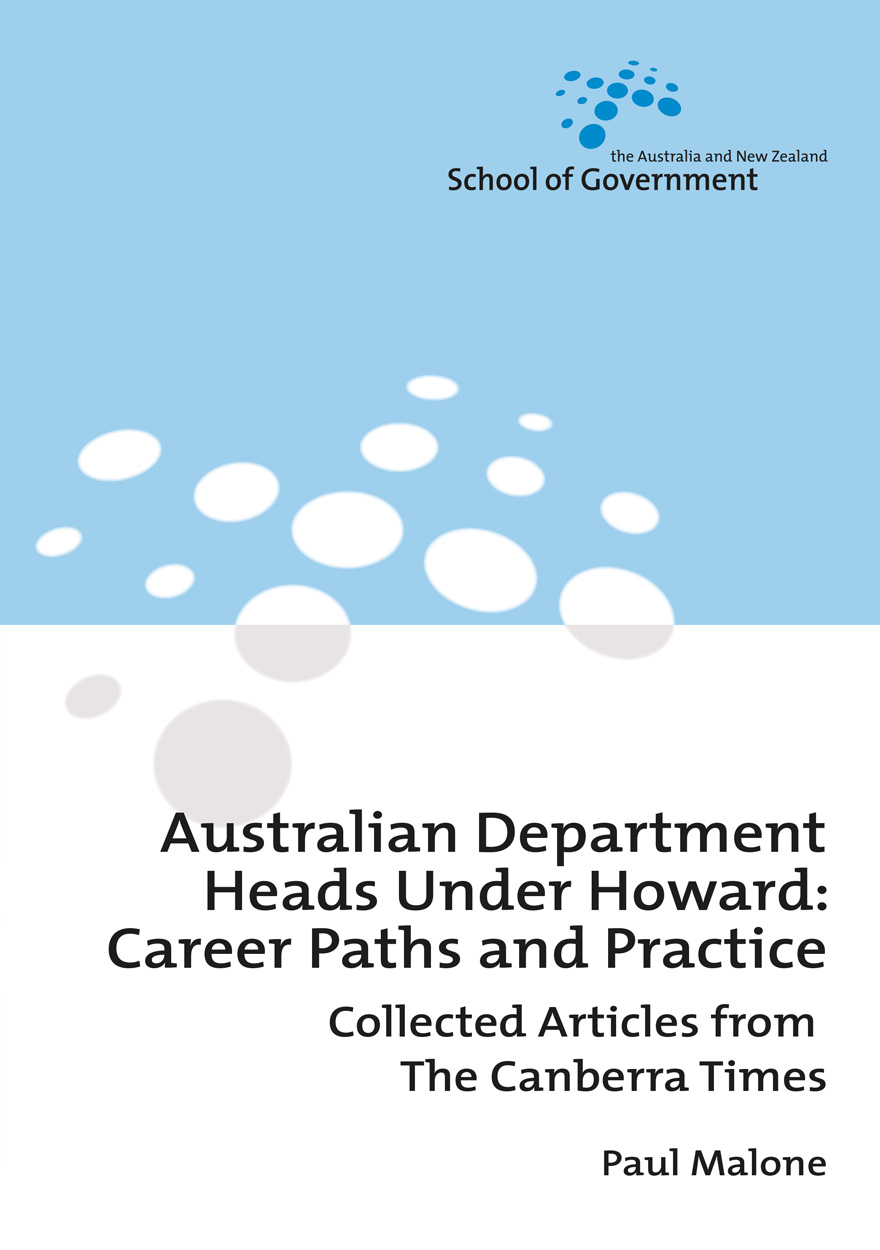
Australian Department Heads Under Howard: Career Paths and Practice »
Collected Articles from The Canberra Times
Authored by: Paul Malone
Publication date: November 2006
The articles in this collection were first published in the Canberra Times between 14 November 2005 and 22 April 2006 in a slightly different format. In some cases two articles were published on the one secretary. These have been combined into one and minor edits and corrections have been made. The articles have not been updated to take account of events since they were first published.
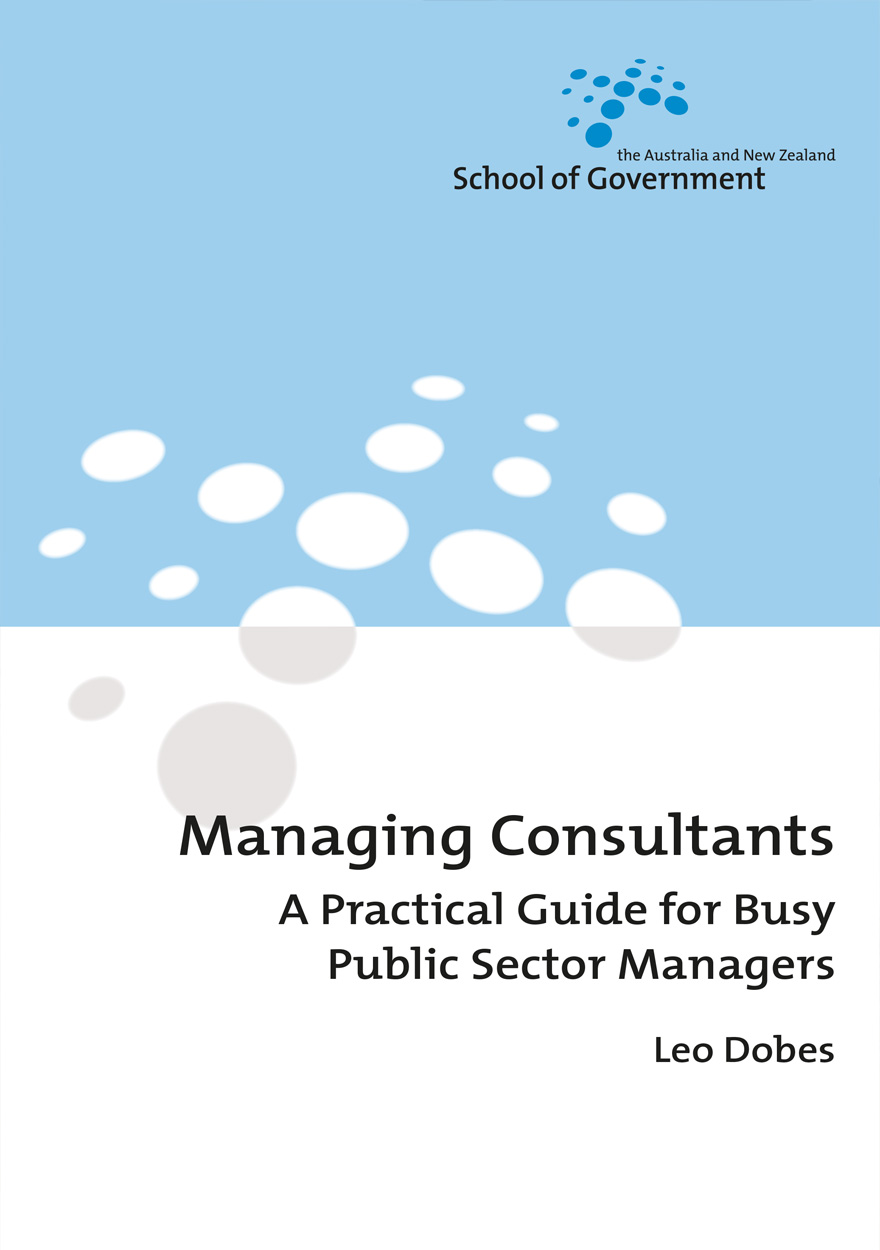
Managing Consultants »
A Practical Guide for Busy Public Sector Managers
Authored by: Leo Dobes
Publication date: November 2006
A revised and updated 2016 edition of Managing Consultants is available.
Despite considerable investment in skills development, managers in public sector organisations still exhibit significant deficiencies in contract and relationship management skills and knowledge. This monograph is a practical, user-friendly guide to the benefits, perils and pitfalls of managing outside consultants.
Writing from years of experience in managing consultants in government, Dr Dobes guides on best practice, as well as including advice on what not to do, and how to rectify shortcomings in the process of using consultants effectively.

Australian Political Lives »
Chronicling political careers and administrative histories
Edited by: Tracey Arklay, John Nethercote, John Wanna
Publication date: October 2006
This monograph brings together some of the best practitioners of the art and craft of political biography in Australia. They are simultaneously some of our best scholars who, at least in part, have turned their attention to writing Australian political lives. They are not merely chroniclers of our times but multidisciplinary analysts constructing layers of explanation and theoretical insight. They include academic, professional and amateur biographers; scholars from a range of disciplines (politics, history, sociology, public administration, gender studies); and politicians who for a time strutted the political stage. The assembled papers explore the strengths and weaknesses of the biographical approach; the enjoyment it can deliver; the problems and frustrations of writing biographies; and the various ways the ‘project’ can be approached by those constructing these lives. They probe the art and craft of the political biographer.
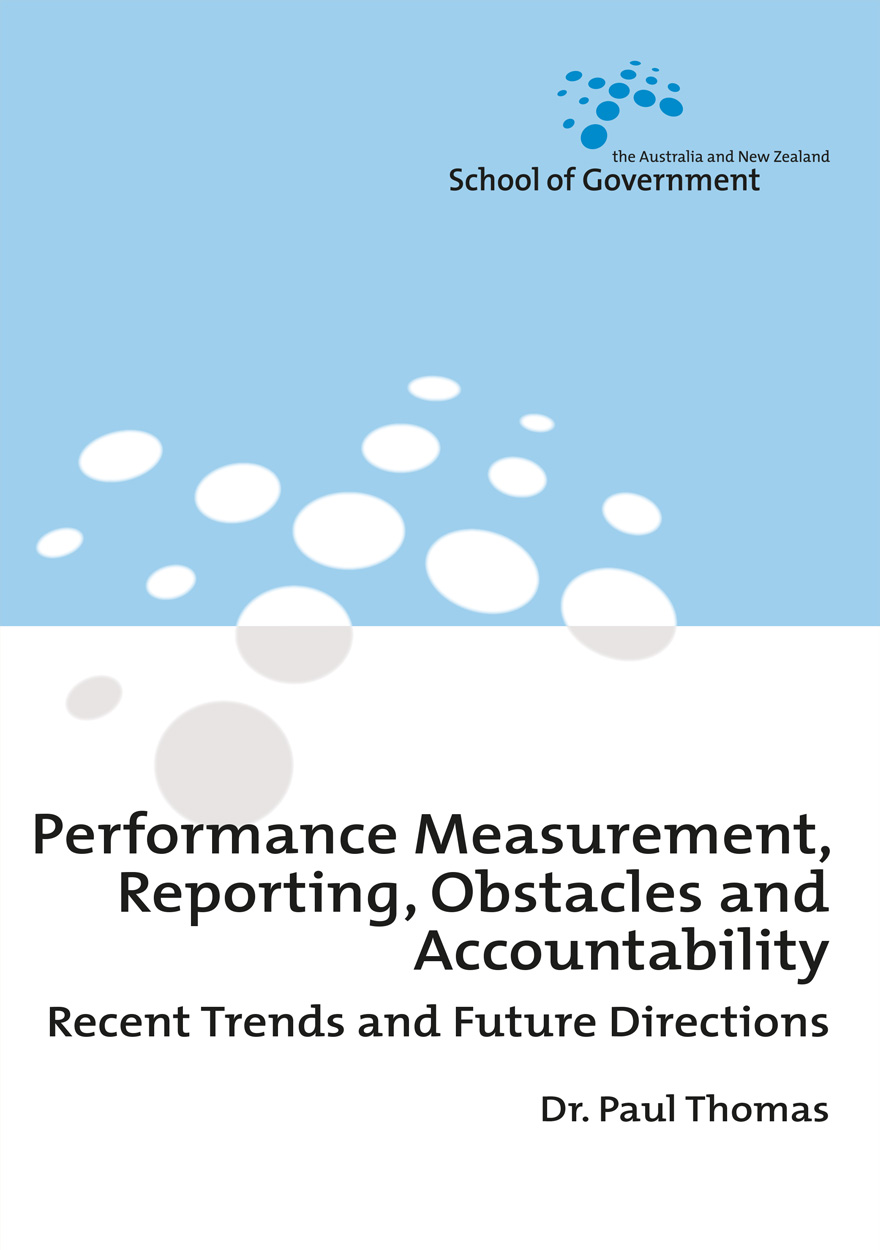
Performance Measurement, Reporting, Obstacles and Accountability »
Recent Trends and Future Directions
Authored by: Paul G. Thomas
Publication date: October 2006
This monograph identifies the ways that ‘politics’ enters into the creation of performance measurement systems, the selection of the official and unofficial aims of such systems, the selection of performance criteria and measures, the interpretation of findings, the responses to such findings and the implications of performance reporting for the accountability of both politicians and public servants. Along the way, both the conditions favouring and the obstacles to successful performance measurement will be highlighted.
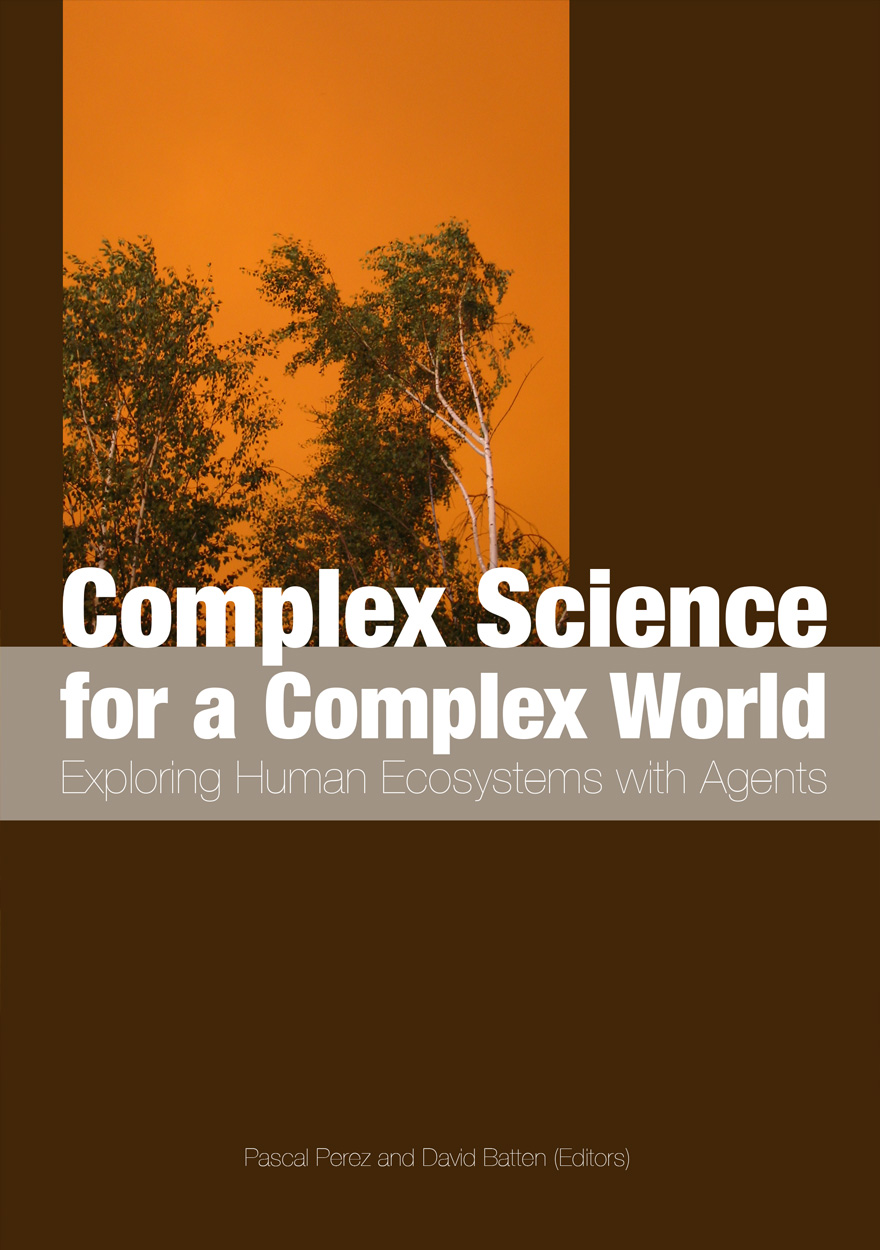
Complex Science for a Complex World »
Exploring Human Ecosystems with Agents
Edited by: Pascal Perez, David Batten
Publication date: August 2006
It is well known that human activities are endangering the stability and sustainability of many fragile ecosystems to such an extent that their future is in doubt. At the same time, these ecosystems are inherently challenging to manage successfully because of the complexity and uncertainty associated with their ongoing evolution. Much of this complexity and uncertainty may be attributed to the human dimension. Thus it is imperative that we deepen our understanding of how and why people choose to interact with one another and how this interactive behaviour affects these ecosystems as time passes.
Fortunately, a new kind of science is helping us deepen our understanding of how human ecosystems might grow and change over time. Beyond a mere collation of various reflections and applications, the chapters in this book aim to convince the reader that this new kind of science is worthy of our attention. It is a science that fully embraces the complexity of our surrounding world. It is also a science that addresses the frontiers of interactions between human behaviour and environmental responses. Furthermore, it is a science that challenges our limited understanding and treatment of uncertainty. And finally, because it is socially embedded, it is a science that can generate partnerships with local communities in a constructive manner.
We hope that you will enjoy the reading of such a diverse ‘ouvrage’ whose purpose is to attract more early career scientists into our field of research and to convince decision-makers that a growing contingent of colleagues working on complexity theory can provide useful tools and methods to better understand complex and adaptive environments. It is time to reassure you (the reader) that the rise of a ‘Complex Science for a Complex World’ doesn’t mean more complicated relationships between science and society.

Maverick Mathematician »
The Life and Science of J.E. Moyal
Authored by: Ann Moyal
Publication date: August 2006
J.E. Moyal has been pronounced ‘one of Australia’s most remarkable thinkers’. Yet, he was, essentially, a scientific maverick. Educated in a modest high school in Tel Aviv, he took himself to France to train as an engineer, statistician and mathematician and escaped to England as France fell.
It was from outside academia that he entered into communication with the ‘high priest’ of British theoretical physics, P.A.M. Dirac, challenging him with the idea of a statistical basis of quantum mechanics. Their correspondence forms the core of this book and opens up an important and hitherto unknown chapter for physicists, mathematicians and historians of science. Moyal’s classic paper, ‘A statistical basis for quantum mechanics’, also reproduced here in full, has come to underlie an explosion of research and to underpin an array of major technological developments.
Joe Moyal emerges in this small biography as a witty and intrepid character, a scuba diver and wine connoisseur, a generous teacher and researcher, and a man whose academic life-spanning France, Ireland, Britain, the USA and Australia-intersected with some of the leading scientists of the 20th century.

Nature, Nurture and Chance »
The Lives of Frank and Charles Fenner
Authored by: Frank Fenner
Publication date: July 2006
Judging by the numbers of newspaper reviews, biographies (including autobiographies) are amongst the most common literary works published these days. However, it is uncommon to find one book that combines a biography and an autobiography, as this book, Nature, Nurture and Chance: The Lives of Frank and Charles Fenner, does. As the author, Frank Fenner, sees it, ‘nature’ means the combination of genes that we inherit from our parents; ‘nurture’ means the way that our physical and social environment, especially during childhood, influence our mental and emotional characteristics; and chance is defined as ‘the way things fall out’. These three elements define the careers of all human beings. The author uses them to compare his father’s life and his own.

Assessing the Evidence on Indigenous Socioeconomic Outcomes »
A focus on the 2002 NATSISS
Edited by: Boyd Hunter
Publication date: June 2006
This monograph presents the peer-reviewed proceedings of the CAEPR conference on Indigenous Socioeconomic Outcomes: Assessing Recent Evidence, held at The Australian National University in August 2005. It presents the latest evidence on Indigenous economic and social status, and family and community life, and discusses its implications for government policy.
The main focus of this volume is on analysing the 2002 National Aboriginal and Torres Strait Islander Social Survey (NATSISS) outputs and issues about how to interpret the data. It also offers some assessment of changes in Indigenous social conditions over time and examines how Indigenous people fared vis-à-vis other Australians in other statistical collections. The discussion of the broad Indigenous policy context by three prominent Indigenous Australians—Larissa Berhendt, Tom Calma, and Geoff Scott—explores different perspectives.

Negotiating the Sacred »
Blasphemy and Sacrilege in a Multicultural Society
Edited by: Elizabeth Burns Coleman, Kevin White
Publication date: June 2006
This cross-disciplinary exploration of the role of the sacred, blasphemy and sacrilege in a multicultural society brings together philosophers, theologians, lawyers, historians, curators, anthropologists and sociologists, as well as Christian, Jewish and Islamic and secular perspectives. In bringing together different disciplinary and cultural approaches, the book provides a way of broadening our conceptions of what might count as sacred, sacrilegious and blasphemous, in moral and political terms. In addition, it provides original research data on blasphemy, sacrilege and religious tolerance from a range of disciplines.
The book is presented in four sections:
Section I: Religion Sacrilege and Blasphemy in Australia.
Section II: Sacrilege and the Sacred
Section III: The State, Religion and Tolerance
Section IV: The Future: Openness and Dogmatism.
The book will appeal to both those actively involved in religious negotiation and to scholars and students of religion in history, philosophy, anthropology, sociology and political science.



